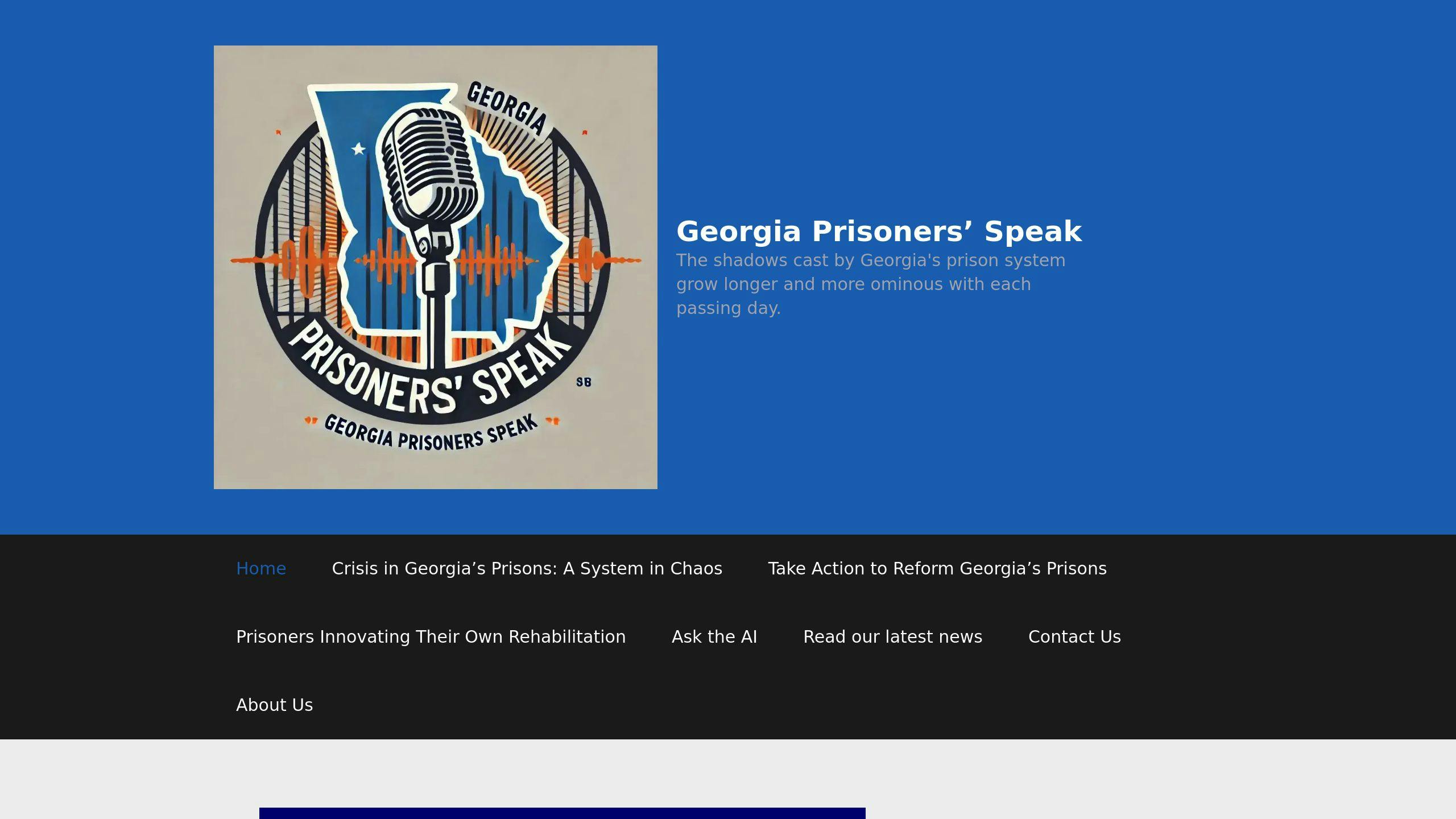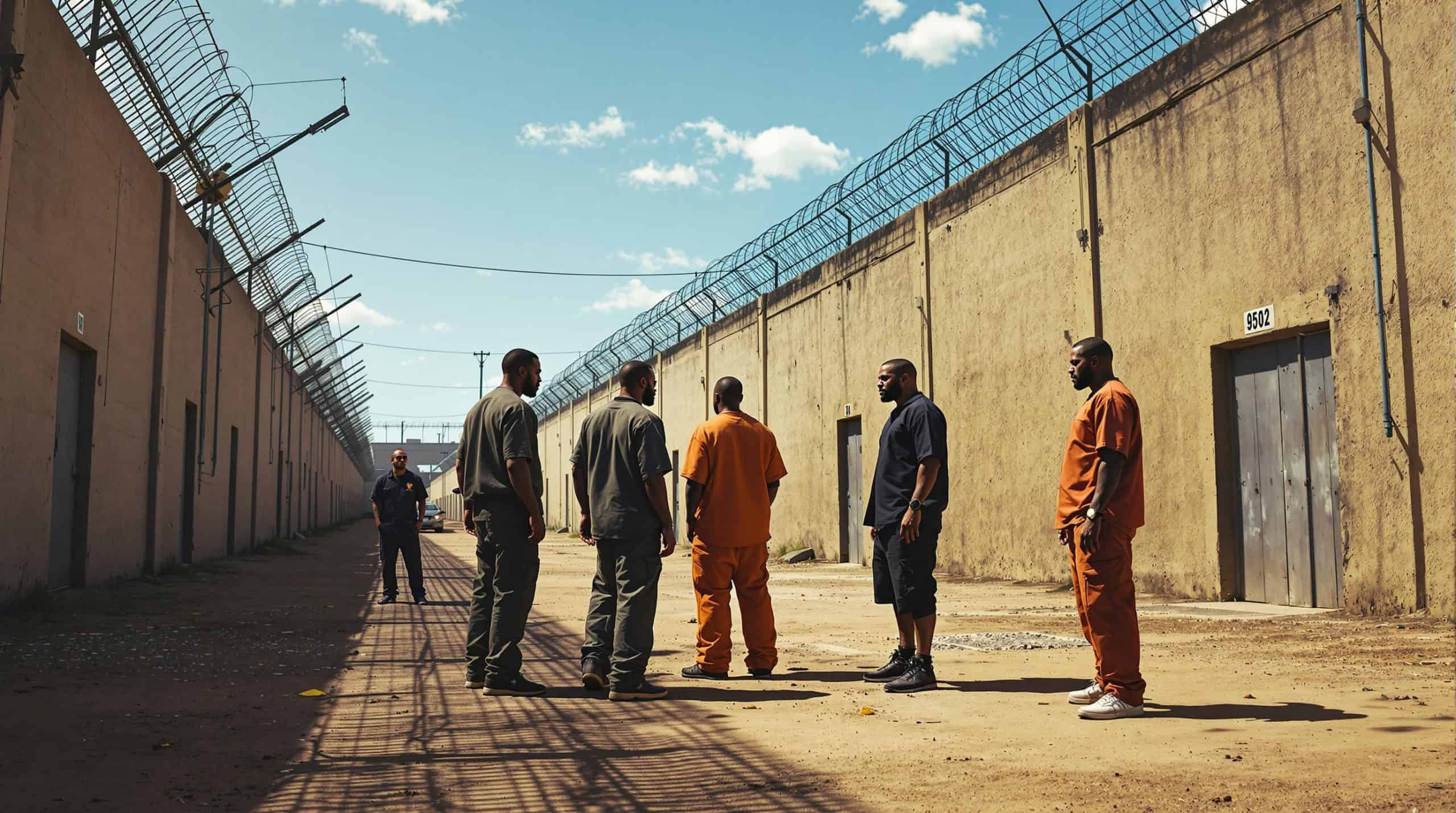Georgia’s prison system faces a severe gang problem, with over 13,000 gang members doubling in just three years. Weak enforcement of separation policies, combined with critical staffing shortages – nearly 50% of corrections officer positions are vacant – has turned prisons into recruitment hubs. This fuels violence, disrupts rehabilitation, and endangers public safety.
Key Issues at a Glance:
- Gang Influence: 65% of crimes in Georgia are linked to gangs.
- Staffing Crisis: 2,985 out of 5,991 officer positions remain unfilled.
- Youth Impact: 51% of youth inmates are gang-affiliated, trapping them in cycles of violence.
Why This Matters:
- Public Safety: Gangs use prisons to expand operations, affecting communities statewide.
- Vulnerable Inmates: Lack of separation policies forces many into gangs for protection.
- Failed Rehabilitation: Prisons become gang hubs instead of reform centers.
Solutions:
- Improved classification systems to separate gang members.
- Adoption of proven strategies from other states, like California’s Security Threat Group program.
- Addressing staffing shortages to ensure proper oversight and enforcement.
Georgia must act now to curb gang influence, protect inmates, and improve public safety.
How Prison Gangs Actually Work
What Happens When Gangs Aren’t Separated
When gang members aren’t properly separated in prisons, it creates a dangerous environment with serious consequences. This flawed system affects not only those incarcerated but also communities throughout Georgia.
How It Affects Public Safety
The impact on public safety is alarming. Georgia is home to about 127,732 known gang members and associates, operating within 1,974 violent gangs [1]. Prisons, instead of curbing gang activity, often become places where these networks grow stronger. Severe staffing shortages make the problem worse – nearly half of all corrections officer positions (2,985 out of 5,991) are unfilled [3]. This lack of staff makes it nearly impossible to separate gang members or maintain proper oversight.
Understaffed facilities allow gangs to organize crimes, recruit new members, and expand their influence both inside and outside prison walls. A 2022 investigation by the Department of Justice Civil Rights Division revealed that unchecked gang activity in prisons directly fuels violence and crime in Georgia communities when these individuals are released. Instead of promoting rehabilitation, prisons often act as hubs for gang networking, threatening public safety.
But the damage doesn’t stop there. Families and vulnerable inmates bear the brunt of these systemic failures.
The Impact on Families and Vulnerable Inmates
The lack of separation policies takes a heavy toll on individuals and their families, especially younger offenders. According to the Department of Juvenile Justice, 30% of inmates in Regional Youth Detention Centers and 51% in Youth Development Campuses are either confirmed or suspected of gang involvement [4].
This environment traps vulnerable inmates in a cycle of coercion and gang activity, leaving families with little hope for rehabilitation. The effects are devastating:
- Vulnerable inmates often feel forced to join gangs for protection.
- Families are left powerless as their loved ones get pulled deeper into gang life.
- Opportunities for rehabilitation are severely limited.
This isn’t just a logistical issue – it’s a systemic failure that demands immediate attention. Implementing effective separation policies could help curb gang influence, improve safety, and create better conditions for rehabilitation across Georgia’s correctional system.
sbb-itb-7858f51
Steps to Reduce Gang Influence in Prisons
Improved Classification and Separation Policies
Gang membership in Georgia prisons has skyrocketed to over 15,000 – doubling in just three years [3]. Unfortunately, current practices fall short of meeting Georgia’s inmate classification guidelines, making it clear that the system needs a major update.
An effective classification system should include the following:
- Thorough assessments and regular monitoring to identify and track gang affiliations.
- Frequent classification reviews to keep tabs on changes in gang involvement.
- Prompt action to address gang-related violations.
Creating specialized facilities for inmates with gang affiliations can help curb forced recruitment and reduce violence. Georgia can gain valuable insights by studying strategies that have worked in other states facing similar issues.
Lessons from Other States
Several states have introduced impactful strategies to manage gang activity in prisons, and Georgia can adopt these approaches. California’s Security Threat Group (STG) management program is a standout example [2]. Here’s how it works:
| Strategy Component | Purpose | Results |
|---|---|---|
| Segregated housing and rehabilitation programs | Separate gang leaders and promote gang renunciation | Disrupted gang networks and better rehabilitation outcomes |
| Programs addressing root causes | Focus on the drivers of gang involvement | Lower levels of gang-related violence |
These results show that combining separation policies with rehabilitation efforts can be highly effective. However, for Georgia to successfully implement similar measures, it must first tackle its critical staffing shortage – currently, 2,985 out of 5,991 corrections officer positions are vacant [3]. Addressing these gaps is essential for creating safer, more rehabilitative prison environments.
The Role of Advocacy in Driving Change
Addressing the gang crisis in Georgia’s prisons isn’t just about policy changes – advocacy and public involvement are equally critical.
How Georgia Prisoners’ Speak (GPS) Makes an Impact

Advocacy efforts like Georgia Prisoners’ Speak (GPS) are making a difference by giving inmates a voice and holding the system accountable. GPS focuses on documenting gang-related incidents, informing the public, and urging policymakers to take action.
Here’s how GPS operates:
| Focus Area | Impact | Outcome |
|---|---|---|
| Documentation | Tracks incidents in real-time | Promotes greater transparency |
| Public Awareness | Runs educational campaigns | Keeps stakeholders informed |
| Legislative Action | Engages directly with lawmakers | Pushes for meaningful reforms |
How You Can Contribute
The prison crisis in Georgia needs public action. Here’s how you can help:
- Reach Out to State Representatives: Share your concerns with lawmakers about the need for better gang classification and separation strategies.
- Support Advocacy Groups: Partner with organizations like GPS to:
- Monitor prison conditions
- Report legal violations
- Share evidence of systemic issues
- Collaborate with media to spread awareness
- Educate Others: Help bring attention to the problems and encourage reforms in prison policies.
"It’s up to us to give them alternatives" – Chuck McPhilamy, Marietta Police Public Information Officer [4]
Conclusion: Why Change Is Urgent
Key Issues at Hand
Georgia’s prison system is grappling with a severe crisis. Problems like rampant gang activity, poor inmate separation policies, and critical staffing shortages are driving violence and blocking any progress toward rehabilitation. With nearly 30% of male prisoners tied to gangs, the need for action can’t be overstated.
The consequences are especially harsh for vulnerable inmates and their families. The Department of Justice has highlighted how weak classification and separation policies allow gangs to tighten their control within the system.
| Area | Current Problem | Immediate Action Needed |
|---|---|---|
| Safety | Gang recruitment unchecked | Enforce stricter separation rules |
| Staffing | 50% officer vacancies | Boost hiring and retention efforts |
| Youth Protection | 51% gang affiliation | Launch targeted intervention programs |
Steps Toward Reform
Fixing these issues requires a focused and multi-layered reform plan. Georgia must implement better inmate classification systems to separate gang members from non-gang-affiliated inmates and rival groups. At the same time, addressing the staffing crisis is essential to ensure these reforms are sustained.
Public advocacy and groups like GPS are essential in pushing for these changes and holding institutions accountable. Without immediate action and continued public pressure, gang influence will keep growing, putting both prisons and surrounding communities at risk. Long-term change depends on a strong commitment from state leadership and active involvement from the public to overhaul Georgia’s prison system.
Related posts
- Prison Reform FAQ: Top Questions About Systemic Change Answered
- Private vs Public Prisons: Understanding Key Differences
- Addressing Prison Overcrowding: Solutions and Strategies
- Georgia prisons are doing virtually nothing to rehabilitation, but prisoners themselves Have been learning computer science using cell phones and tablets.
